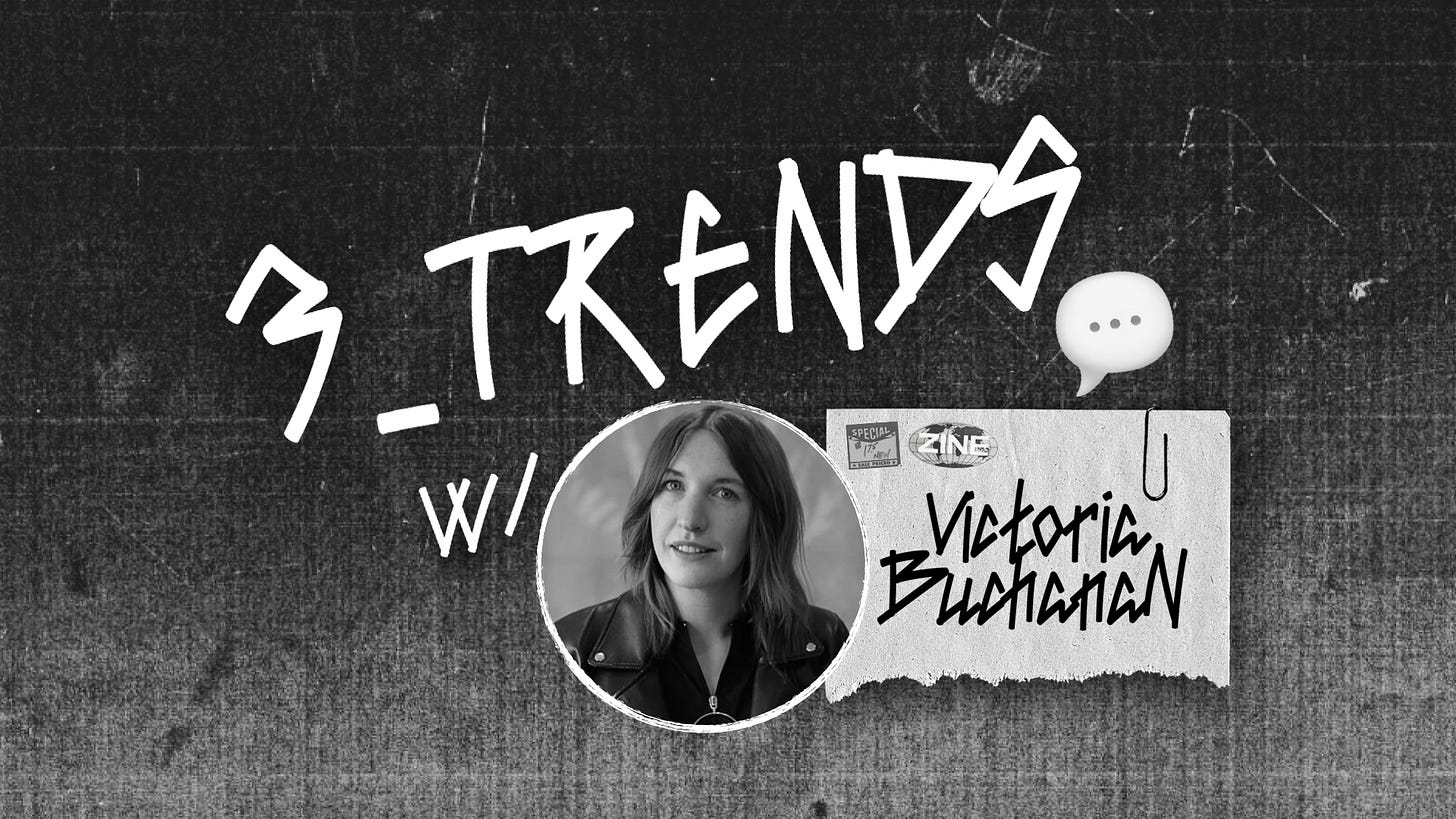3_TRENDS_Vol.17: Victoria Buchanan: Surrealism, World Saving Luxury + Fractional Work
Vol.17
3_TRENDS is an interview series with the world's leading cultural researchers and thinkers, sharing their favorite overlooked trends.
Victoria Buchanan (VB) is Futures Director at The Future Laboratory, a strategic foresight consultancy using trends and cultural intelligence to build future fit strategies. With over a decade of experience, she’s wo…


